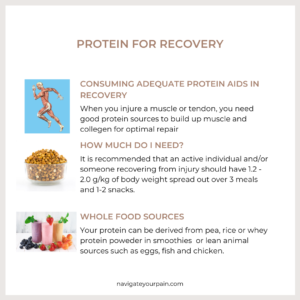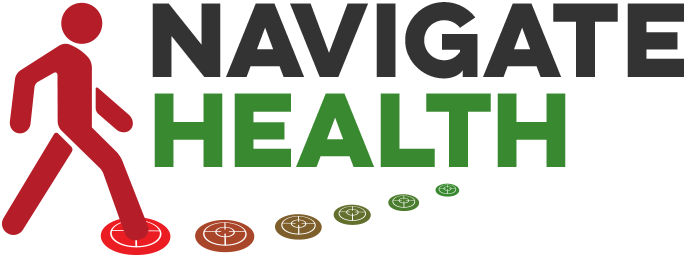We all know that good nutrition is important. Eating the right kinds of foods at the right times in the right amounts sounds simple but eating has a complex web of variables that usually does not have easy answers and certainly does not have a ‘one size fits all’ solution.
The food we eat is broken down by the body into 3 main categories or macronutrients: protein, carbohydrates and fat. We need all 3 to maintain optimal function and the percentage of each macronutrient will vary from person to person depending on all sorts of factors such as age, activity level, gender and medical history. However, we can make some generalizations that work for most people and today I want to focus that discussion on protein.
A protein is made of building blocks called amino acids. There are 21 main amino acids and 9 essential amnio acids. Our body cannot make the essential amino acids so the must be included in the diet. The amnio acids are the building blocks for tissues in our bodies and sustaining basic functions. Building muscle, repairing tissue, and regulating your immune system are just a few processes that need amino acids. Therefore, adequate amounts of protein are very important to sustain life.
How much protein is needed is often a subject of debate. Too much protein can be hard on the kidneys and too little will slow healing, drag down the immune response and may cause muscle breakdown in an active person. There will always be some discrepancy in the recommended daily allowance but here are some basic guidelines.
1: Minimal amount of protein as recommended by USRDA for non-active people
0.8g/kg of body weight to 1.0g/kg body weight
2: For physically active people
1.4 -2.4g/kg body weight.
Example: To find KG simple divide your weight in lbs by 2.2: 150 lbs = 68.2 kg. For a non-active person that means eating between 54 to 68 grams of protein per day.
So if you are someone who has an injury, your body requires ample protein to rebuild that tissue or healing could be delayed. The more optimal the healing process with adequate nutrients, the less trouble you will have with lingering pain and stiffness.
However, not all proteins are created equal! Some proteins are digested quickly while others take many hours. For example, whey protein, which is isolated from milk, metabolizes quickly and is recommended for use after high levels of exercise to build up muscle that was broken down and is best utilized in portions of 20-25 grams for optimal uptake. Conversely, protein from egg sources or casein protein are digested slower and the body can handle larger quantities in a single meal. Keep in mind that there are many variables that affect uptake of any nutrient in the body, so this is not a hard and fast rule. Other nutrients such as sugar and fat also affect speed of protein digestion and uptake.
For those of you who are vegetarians or vegans, you can rely on pea and rice protein powders as a supplement. These plant-based proteins are usually slower to digest and are considered incomplete proteins because they lack some of the essential amino acids. So a mixture of different plant proteins is required for a complete protein source. Soy is the exception and is considered a complete protein.
Grab a protein bar for a post workout snack, make a smoothie with your favorite protein powder or a cup of Greek yogurt and boil eggs as a snack for easy, convenient ways to add healthy protein to your diet.

References:
Schoenfeld and Aragon Journal of the International Society of Sports Nutrition (2018) 15:10 https://doi.org/10.1186/s12970-018-0215-1
Taylor, Maragaret, Journal of Prolotherapy (2011) Vol.3, Issue 3, August 2011


